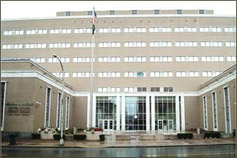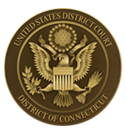United States District Judge for the District of Connecticut
Staff Information
Law Clerk Hiring
Judge Nagala accepts law clerk applications through OSCAR.
Law Student Intern Hiring
Judge Nagala hosts academic year and summer law student interns. Interested applicants may send a cover letter, résumé, writing sample (no longer than 15 pages), transcript, and a list of three references to svn_chambers@ctd.uscourts.gov. University of Connecticut School of Law applicants should apply through the school’s Center for Career Development. Judge Nagala begins considering spring academic term intern applications in mid-October of the previous year and fall academic term intern applications in mid-February of the same year. She begins considering full-time, unpaid summer intern applications in mid-January of the same year.
Undergraduate Intern Hiring
Judge Nagala hosts undergraduate interns during the month of July each year. Interns will be assigned duties within Judge Nagala's chambers and with the District of Connecticut's Warren W. Eginton Justice Institute. Interested applicants may send a cover letter and résumé to svn_chambers@ctd.uscourts.gov. Judge Nagala will begin considering full-time, unpaid summer undergraduate intern applications in February each year.

ABRAHAM RIBICOFF FEDERAL BUILDING
United States Courthouse
450 Main Street - Suite 108
Hartford, Connecticut 06103
Location: Courtroom 1
